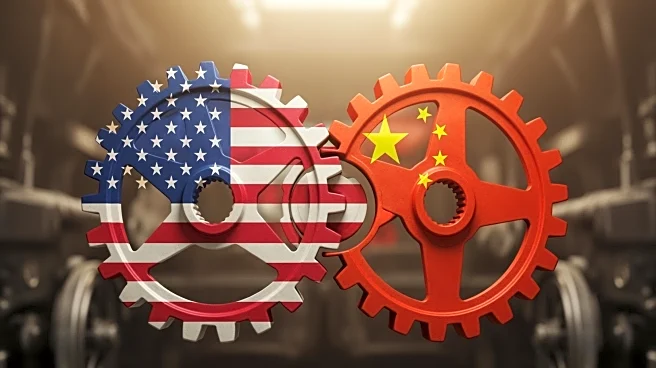What's Happening?
The United States and China are escalating their trade war, with both countries imposing new tariffs and export controls. China announced restrictions on the export of critical raw earth minerals, essential for various industries including military and technology
sectors. In response, President Trump announced 100 percent tariffs on Chinese goods and new export controls on technology destined for China. Both countries have delayed the implementation of these measures, suggesting a strategic positioning for future negotiations.
Why It's Important?
The trade war between the U.S. and China has significant implications for global economic growth and the industries reliant on rare earth minerals and technology. The U.S. is seeking alternative sources for these minerals, which could lead to increased environmental concerns due to mining. The conflict also highlights the interdependence of the two economies, with the U.S. dominating in semiconductors and China controlling rare earth processing. The ongoing tensions could lead to long-term shifts in global trade dynamics and economic policies.
What's Next?
Both countries have left room for negotiation by delaying the start of their respective measures. This suggests potential diplomatic efforts to resolve the conflict before the tariffs and export controls take effect. The planned meeting between President Trump and Chinese President Xi Jinping could be pivotal in determining the future of U.S.-China relations and the global trade landscape.
Beyond the Headlines
The trade war underscores the strategic importance of rare earth minerals and technology in modern economies. The U.S. is exploring deals with other countries to diversify its sources, which could lead to geopolitical shifts and environmental challenges. The reliance on China for processing these minerals highlights vulnerabilities in the U.S. supply chain, prompting discussions on increasing domestic processing capabilities.















